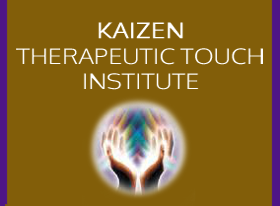 It is how we see things, what we perceive, that shapes how we respond. Fundamental to shaping our perception are the beliefs, assumptions and attitudes that act as perceptual filters – filtering out what doesn’t fit in your mental paradigm. As human beings, if we learn at all, we learn through contrast. It’s in contrast that we can learn to discern, distinguish this from that, and learn to make choices that support our intentions.
It is how we see things, what we perceive, that shapes how we respond. Fundamental to shaping our perception are the beliefs, assumptions and attitudes that act as perceptual filters – filtering out what doesn’t fit in your mental paradigm. As human beings, if we learn at all, we learn through contrast. It’s in contrast that we can learn to discern, distinguish this from that, and learn to make choices that support our intentions.
So, what is conflict anyway?
The Free Dictionary defines conflict as
- A state of open, often prolonged fighting; a battle or war.
- A state of disharmony between incompatible or antithetical persons, ideas, or interests; a clash.
- Psychology A psychic struggle, often unconscious, resulting from the opposition or simultaneous functioning of mutually exclusive impulses, desires, or tendencies.
- Opposition between characters or forces in a work of drama or fiction, especially opposition that motivates or shapes the action of the plot.
From a system’s perspective, conflict then, consumes energy and attention. The amount of energy and attention the conflict consumes depends on diverse factors including personal investment in the situation and attachment to outcome.
Questions that can reveal level of investment may be:
How important is it to win? What would winning look like? Why? How will it feel to have won? How will it feel to have lost?
As long as we see ourselves as separate, independent, beings, rather than interdependent beings, a part of a living, breathing whole, we will push away the other and be subject to interpersonal conflict. Through conflict, we may, if we are mindful, discover our strengths, gifts and talents. Training and coaching can help us penetrate our blindspots to see what’s really there.
Shifting perspective and cultivating a mindset attuned to one of mindful interdependence as in “You and I are really ONE – we share the air we breathe, the water we drink and the space we live in. Your strengths, gifts and talents, when brought into harmony with mine can enrich the world and in so doing, can benefit us both.”
What is a vision we share? What are some values we have in common? How can we collaborate so we both win? What are the ways you and I can contribute to the whole? What are some ways we can modify our expectations so that we can develop the win win win scenarios where everyone and everything involved can benefit the most?
As long as we see the situation and the other as a competitor, conflict is inevitable. Shift from competitive thinking to collaborative thinking and the whole picture changes. By refocusing our relationship to the situation, we can leverage the conflict we share grow both individually and in relationship. In the process we learn how to apply mindfulness principles and practices to defuse the situation before it gets out of control. Learn how.





